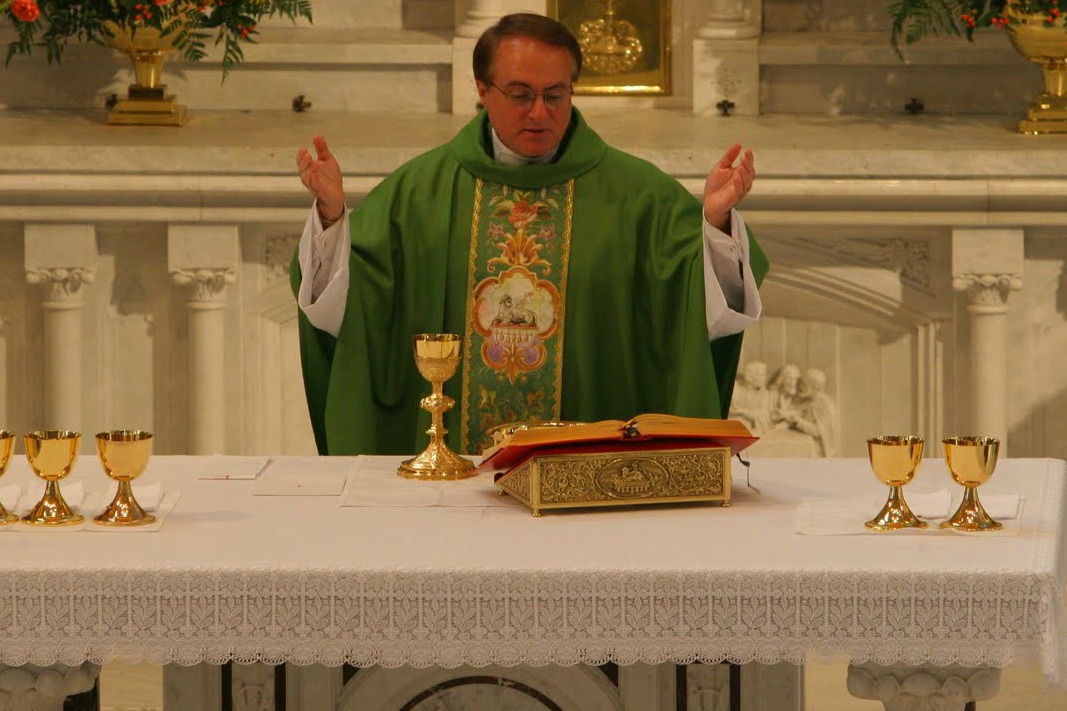If you have ever learned a second language, you know that some concepts do not translate perfectly. I have always loved discovering those words and phrases in Spanish that more precisely convey meaning than their corresponding English. The feeling is akin to becoming privy to a small but special secret—only these are the secrets you want to share with others, hoping they provide a similar sense of excitement and insight.
For me, certain lines of the Mass said in Spanish prompt this discovery. I only started learning Spanish in high school, but it didn’t take me long to fall in love with the language. Through various extended immersions, I have had my fair share of exposure to the Mass in Spanish. And while there was indeed a learning curve, I did eventually move from mumbling unintelligibly to confidently joining my voice with others in our response as a unified congregation.
In the very beginning of the Eucharistic Prayer, a dialogue occurs between the priest and the congregation. In English:
Priest: The Lord be with you.
People: And with your spirit.
Priest: Lift up your hearts.
People: We lift them up to the Lord.
Priest: Let us give thanks to the Lord our God.
People: It is right and just.
From here, there are several different versions of the prayer the priest may recite, the most common of which goes on to affirm, “It is truly right and just, our duty and our salvation . . . to give you thanks.”
This exchange evokes a slightly different meaning in Spanish. The congregation proclaims the last line of this prayer as, “Es justo y necesario.” It is just and necessary. I remember how striking I found this wording the first time I truly understood it. In English, “right” and “just” can be used synonymously. Although the two words together bring out deeper meaning than either would alone, the Spanish translation leads me to deeper reflection. Not only is it right and just to give our praise and thanks to God; it is necessary. Not only is it something we should do, it is something we must do, as “our duty and our salvation.”
Understanding this declaration as a necessity changes how I view the Eucharistic Prayer as a whole. While we thank God for the many gifts in our lives in this introductory dialogue, we also realize it is necessary to thank him for the gift of our lives as they are redeemed in his son Jesus Christ. In a particular way during this exchange, we are called to thank God in advance for the great miracle about to occur in the Eucharistic sacrifice.
Even when attending Mass in English now, I recall how a posture of humility and thanksgiving is just and necessary to truly enter into the sacrament of the Eucharist. Since the Liturgy of the Eucharist is so central to the Mass, its words help me see why going to Mass is essential to our faith. Going to Mass and receiving the Eucharist is right and just and necessary to living our faith. We don’t go simply because we should; rather, we must attend Mass each Sunday if we desire to bring about right relationship in this world and the next. We must approach the Eucharistic sacrifice with humility if we wish to bring that humility into our encounters. We must receive Christ’s self-gift in the Eucharist to be self-giving love in the world. Our weekly celebration is more than a momentary celebration of God’s goodness—it enlivens communities throughout the week and the year to be strong in faith and to live the good news, thankful for the sacrificial mystery in which we have taken part.
We give God thanks and praise before receiving the Eucharist because it is right and just, but also, as the Spanish translation reminds us, because it is necessary. This necessity is echoed in the relationship between attending Mass and living out our Catholic faith. We go to Mass because it’s right. We go to Mass because it’s just. But we also go because it is necessary to live a Christian life, giving praise and thanks to God.



